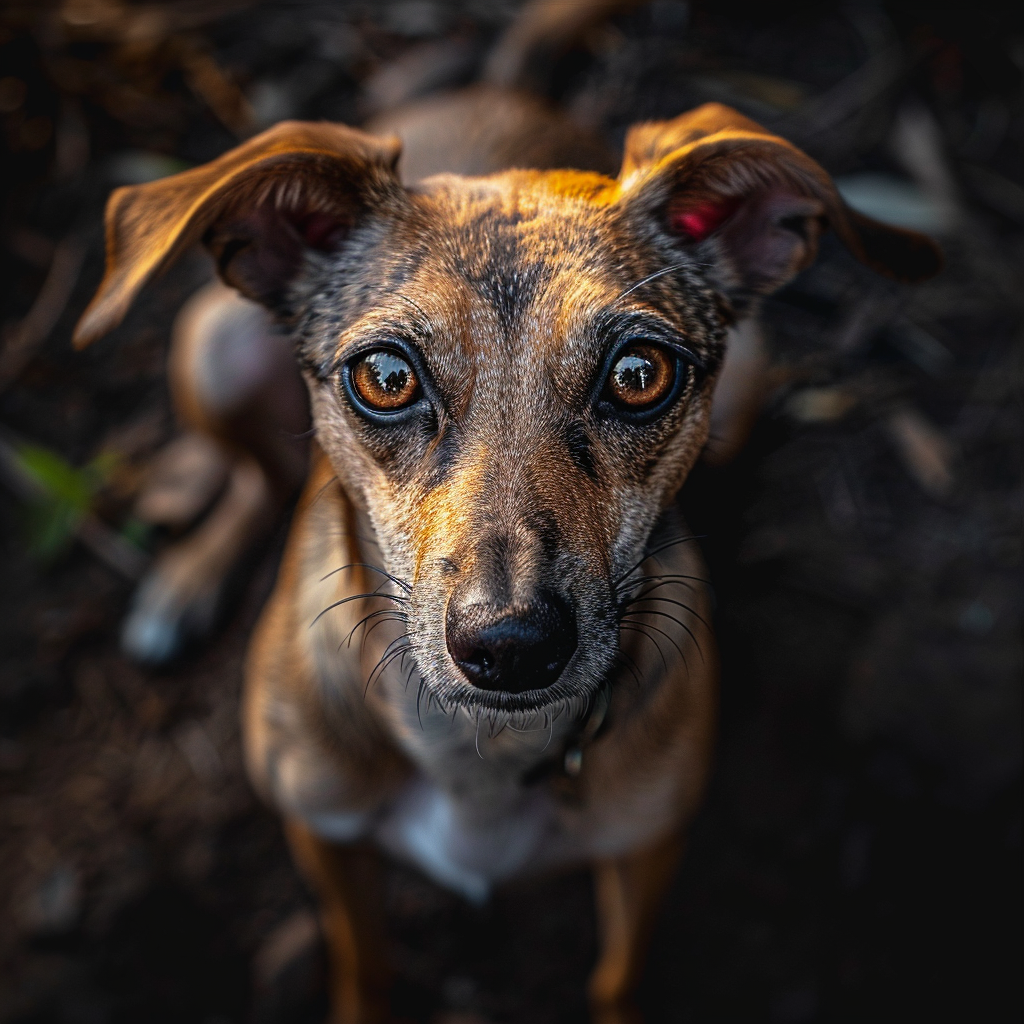Can Dogs Eat Pork Rinds? Understanding the Implications for Canine Health

When it comes to snacking, pork rinds are a popular choice among humans. But what about our canine friends? So whats the truth: can dogs eat pork rinds? Yes, dogs can eat pork rinds in moderations, but if they are made with seed oils (think canola, safflower, etc) you really should be reducing them from your dogs diet.
What Are Pork Rinds?
Pork rinds, also known as pork skins or pork scratchings, are a type of snack made from deep-fried or baked pork skin. While they're a tasty treat for humans, they might not be the best choice for dogs. Pork rinds can come in various forms, including fried pork rinds, spicy pork rinds, and even boiled pork rinds.
Canine Dietary Requirements
A dog's diet varies significantly from human foods. While people might enjoy pork rinds as a crunchy snack, dogs require a diet that's rich in protein and essential nutrients, more aligned with their natural dietary needs. This is where the concept of the Whole Prey diet comes into play, emphasizing meat, organs, and natural sources of nutrition.
The Whole Prey Diet: This approach to a dog's diet focuses on providing all the nutritional benefits found in the entire prey. It includes high-protein sources like lean meats, nutrient-rich organs, and minimally processed foods that cater to a dog's health and well-being.
Given the stark differences between a dog's diet and human snacks like pork rinds, it's crucial to consider what pork rinds are made of and their potential impact on a dog's health, which will be discussed in the upcoming sections.
The Health Risks of Pork Rinds for Dogs
Feeding dogs pork rinds, especially spicy or salted varieties like deep fried or spicy pork rinds, poses several health risks. The high fat content in pork rinds, particularly unhealthy fats, can lead to digestive upset and more severe health issues like pancreatitis. Additionally, the excessive salt in pork rinds can cause salt poisoning, leading to symptoms like excessive thirst, stomach pain, and in severe cases, high blood pressure and heart disease.
Adverse Reactions: Pork rinds also contain ingredients like garlic and onion powder, which are toxic to dogs. Ingesting these can cause serious health problems, including potential damage to red blood cells.
Whole Beast: Beneficial for Dog's Health

Instead of processed snacks like pork rinds, dog owners should consider healthier alternatives that align with a dog's nutritional needs. One such option is 'Whole Beast' – a product that offers a balanced blend of nutrients without the health risks associated with human snacks. 'Whole Beast' treats are made from natural ingredients, free from the unhealthy fats, excessive salt, and harmful additives found in pork rinds.
By choosing 'Whole Beast', pet owners can ensure their furry friends receive nutrition that supports their overall health. This aligns perfectly with the principles of a healthy diet for dogs, focusing on natural, wholesome ingredients rather than processed, salty foods like pork rinds.
In the final section, we'll discuss how to incorporate healthy treats into a dog's diet and why avoiding human snacks like pork rinds is crucial for maintaining a dog's health.
Moderation and Responsible Feeding
When it comes to treating our canine friends, moderation is key. While it might be tempting to share human snacks like pork rinds with dogs, it's essential to consider the nutritional value and potential health implications. Pork products, especially those processed for human consumption, often contain unhealthy levels of fat, salt, and additives that can lead to adverse reactions in dogs, including stomach upset and more serious conditions like salt poisoning and pancreatitis.
Choosing Healthy Snacks: Instead of giving dogs pork rinds or other human foods, opt for dog-friendly treats that are specifically designed to meet their dietary needs. Treats should be viewed as a complement to their regular diet, not as a replacement for nutritionally balanced dog food.
Conclusion
In summary, while dogs may find pork rinds tempting, these snacks are far from ideal for their health. The high fat and salt content, along with the presence of potentially harmful ingredients, make them unsuitable for a dog's diet. As responsible dog owners, it's important to avoid feeding dogs human snacks like pork rinds and instead focus on providing them with healthy, nutritious treats that promote their overall health and well-being.
By staying up to date with the latest veterinarian research and choosing treats like 'Whole Beast,' which offer nutritional value without the health risks of human snacks, pet owners can ensure they are taking the best possible care of their canine friends.
FAQ on Dogs and Pork Rinds
- Q: Can dogs eat pork rinds safely?
- A: While dogs may eat pork rinds, it's not recommended due to high salt and fat content, which can lead to digestive upset and other health issues.
- Q: What are the risks of feeding pork rinds to dogs?
- A: Pork rinds, especially deep-fried or spicy ones, pose risks like salt poisoning, excessive thirst, and high blood pressure, making them unsuitable for a dog's diet.
- Q: Are any pork products safe for dogs?
- A: Cooked pork without added salt or spices can be fed in moderation. However, avoid fatty pork products and those with additives like garlic.
- Q: What should I do if my dog eats pork rinds?
- A: If your dog eats pork rinds, monitor for signs of stomach pain or adverse reactions, and consult a vet if you notice any health problems.
- Q: What are healthier treat alternatives to pork rinds for dogs?
- A: Choose dog-friendly treats with high nutritional value and low fat and salt content to avoid health issues like heart disease and maintain your pet's diet balance.



Comments